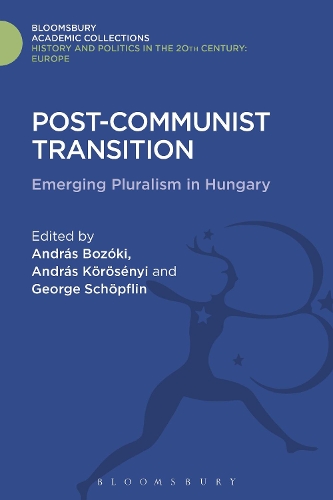
Post-Communist Transition: Emerging Pluralism in Hungary
(Hardback)
Publishing Details
Post-Communist Transition: Emerging Pluralism in Hungary
By (Author) Andrs Bozki
Edited by Andrs Krsnyi
Edited by George Schpflin
Bloomsbury Publishing PLC
Bloomsbury Academic
6th October 2016
United Kingdom
Classifications
Tertiary Education
Non Fiction
European history
320.943909051
Physical Properties
Hardback
224
Width 156mm, Height 234mm
462g
Description
The transition from communist dictatorship to multi-party democracy has proved a long and painful process for the countries of Eastern Europe, and has met with varying degrees of success. In Hungary, the radical opposition was uniquely successful in fighting off attempts by the old-guard communist elite to hijack reform programmes, by forcing free elections and creating a multi-party system. This volume focuses on the Hungarian experience, analysing in detail the process of transition from dictatorship to pluralist democracy. Some of Hungarys leading political scientists examine issues such as the legitimation crisis of communist rule, resulting struggles within the ruling elite and the forces behind transition. Constitutional reform, party formation and voting behaviour at the first free elections are also taken into account. The concluding section places the Hungarian experience in comparative perspective, within the context of other Central and Western European states.
Author Bio
Andrs Bozki is Professor of Political Science at the Central European University in Budapest, Hungary. Andrs Krsnyi is the General Director of the Centre for Social Sciences at the Hungarian Academy of Sciences in Budapest, Hungary. George Schpflin is former Jean Monnet Professor of Politics at the School of Slavonic and East European Studies, University College London and current Member of the European Parliament.
